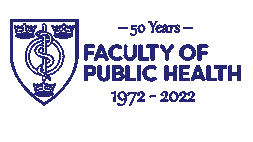 |
The European Public Health Association Newsletter - January 2022 |
1. EditorialWelcome to our January newsletter, where we provide you with EUPHA updates, including the published articles in our EJPH and news from our members. Also included are updates from WHO Europe, the European Commission and ECDC. We are pleased to announce the 4th edition of our European Public Health Week and hope that many of you are planning to actively participate in this week (16-20 May). The European Public Health Conference 2022 is planned in Berlin, Germany from 9-12 November. Abstract submission will open tomorrow morning and we hope many of you will submit their work and research. Wishing you pleasant reading, Iveta Nagyova, EUPHA president, and Dineke Zeegers Paget, EUPHA executive director |
2. EUPHA updateEUPHA-Webinar 'Migration, health & economics: mapping the field'The webinar is planned for April 28, at 13:00 - 15:30 CET
We would like to invite persons engaged in this topic to contribute by sending an abstract as indicated in the attached call no later than February 15. https://eupha.org/repository/sections/mi...A second life for your health data? Share your views.The citizen e-consultation “Healthy Data - your views on the reuse of your health data” aims at raising awareness, stimulate the reflexion and engage the discussion with and between citizens on the use of health data beyond individual care - what is usually called “reuse, or “second life” of health data. It was launched on December 6, 2021 and open until April 4, 2022. The consultations is organized by Sciensano (Belgium), the Health Data Hub (France) and the NHS Confederation (United Kingdom), available in French, Dutch and English and accessible to any European citizen willing to participate. You are encouraged to circulate the call to participate in the e-consultation within your network. More information here. EPH2021 Chronic Diseases Track Report publishedThe first track report of the 14th European Public Health Conference (2021) is published. These track reports are elaborated by EUPHA fellows, a programme for young public health professionals to be more involved in the conference. Our young network, EUPHAnxt, is coordinating the fellowship programme. |

3. European Public Health WeekEUPHW 2022This year's European Public Health Week addresses 'Health throughout the life course': The week is organised with five daily themes:
We hope you are all interested in being involved. How? Submit an event, help us as a disseminator or participate! Sign up to the EUPHW mailing list if you wish to remain up to date. Just email euphacommunications@eupha.org with subject "subscribe EUPHW”. https://eupha.org/EUPHWThe European Public Health Week: an event supported by the WHOThe WHO Regional Office for Europe has drawn up a list of events that focus on delivering the European Programme of Work, that includes the EUPHW. We are delighted to once more receive their support. https://www.euro.who.int/en/about-us/reg... |
4. European Public Health Conference15TH EUROPEAN PUBLIC HEALTH CONFERENCE, 9 - 12 NOVEMBER 2022STRENGTHENING HEALTH SYSTEMS: IMPROVING POPULATION HEALTH AND BEING PREPARED FOR THE UNEXPECTED’. WELCOME TO BERLIN 2022 ABSTRACT SUBMISSION OPENS 1 FEBRUARY ABSTRACT MENTORING PROGRAMME REGISTRATION THEME AND PROGRAMME CONFERENCE VENUE |
5. EUPHA members updateJournal of Public Health Special Issue to mark 50th Anniversary of the UK Faculty of Public Health: A Call for papers
|

6. European Journal of Public HealthAdvance Articles - January 2022Primary COVID-19 vaccine cycle and booster doses efficacy: analysis of Italian nationwide vaccination campaign Older Europeans’ health perception and their adaptive behavior during the COVID-19 pandemic The role of health literacy in the association between academic performance and substance use Health care provider trust in vaccination: a systematic review and qualitative meta-synthesis Prevalent migraine as a predictor of incident hypertensionAnitta H Entonen, Investigating the salmon bias effect among international immigrants in Sweden: a register-based open cohort study Interaction between science advice and policymaking in time of COVID-19: a French perspective |
7. Call for proposals, job opportunitiesThe European Observatory on Health Systems and Policies is hiring to two Technical Officers (Brussels and London).Applications close on 1 February. https://eurohealthobservatory.who.int/ne...EHMA Conference: Submit you abstractThere is still time to submit your abstracts for the EHMA 2022 Annual Conference taking place in Brussels on 15-17 June 2022. You can submit your research addressing the overarching conference theme ‘From people to systems: leadership for a sustainable future’ until 14 February 2022. For questions, contact the EHMA Secretariat at chiara.gonzi@ehma.org. Nutrients | Call for Special Issue Proposals for Section "Nutritional Immunology"Authors are invited to submit original research and review articles describing the impact and mechanisms underlying the relationship between nutrition and immunity. Interest in in articles describing this complex relationship in humans and also in animal models, either in health or during pathological processes, in which the dietary compounds may act by modulating immune response. https://www.mdpi.com/journal/nutrients/a... |
8. Interesting newsHealth system resilience post-COVID: Moving towards more European cooperation (Eurohealth)European Observatory on Health Systems and Policies | Journal Article | 20 January 2022 Finally a Priority? Alcohol Policy at WHO EB150Movendi International | Policy news | 25 January 2022 Even light drinking can be harmful to healthScience Daily | 28 January Rural air pollution may be as hazardous as urban, study findsScience Daily | 27 January Every Breath We TakeThink Global Health | 27 January Big Tobacco in 2022: What They'll Say vs. What They'll DoExpose Tobacco | Blog | 20 January Is precision public health the future -- or a contradiction?Nature | News feature | 4 January Tobacco publishing ban for researchers at industry-owned firmsNature | News | 28 January |
9. Upcoming courses and conferences
|
10. Interesting publicationsThe social determinants of child health and inequalities in child healthPaediatrics and Child Health | 5 January 2022 Housing interventions for women experiencing intimate partner violence: a systematic reviewThe Lancet Public Health | Article | January 2022 Secondhand nicotine vaping at home and respiratory symptoms in young adultsThe BMJ Thorax | Original Research | 10 January 2022 Special Issue on Health and Healthcare Communication in the Pandemic Era: Opportunities and ConstraintsThe International Journal of Environmental Research and Public Health, which is a peer-reviewed scientific journal with an impact factor of 3.390. New health systems insights from Georgia, Kyrgyzstan, North Macedonia, Ukraine and Uzbekistanhttps://eurohealthobservatory.who.int/ne...Careful assessment of patient needs can reduce costs in end-of-life care (Policy brief)https://eurohealthobservatory.who.int/ne...Protecting the mental health of youthThe Lancet Regional Health Europe | Editorial | January 2021 Do partnership dissolutions and living alone affect systemic chronic inflammation? A cohort study of Danish adultsJournal of Epidemiology and Community Health | Original Research | 10 January 2022 Considerations of sex and gender dimensions by research ethics committees: a scoping reviewInternational health | Review | 19 January 2022 Estimation of the global prevalence of dementia in 2019 and forecasted prevalence in 2050: an analysis for the Global Burden of Disease Study 2019The Lancet Public Health | Article | 6 January 2022 Ethical health security in the age of antimicrobial resistanceThe BMJ Global Health | Original research | 7 January 2022 |
11. European Commission newsConference on the Future of Europe: Panel on Climate change, environment / Health delivers recommendationsThe European Citizens' Panel on Climate change, environment and Health met for the third and final time on 7-9 January 2022. Around 200 European citizens of different ages and backgrounds, from all Member States, met and adopted their 51 recommendations on the challenges that Europe has to deal with in relation to the climate, the environment, and health. You can read them here. https://futureu.europa.eu/pages/plenaryCommission publishes a second Statement on Emerging Health and Environmental IssuesThe SCHEER statement II on emerging health and environmental issues (adopted on 13 January 2022) draws the attention of Commission Services to nine emerging issues in the non-food area that Committee members have identified as having a potential impact on human health and/or the environment in the future. Among the risks identified are the human-computer/robot interfaces, climate change and water pollution, nanotechnology organics, and the chemical risks in a circular economy. https://ec.europa.eu/health/publications...Cancer in Europe: 5 things the data tells usJoint Research Centre | 13 January 2022 Webinar: Healthier Together - EU NCD Initiative3 February 2022 / Online European Health Union: new rules to improve clinical trials in the EUAs of Monday 31 January, the assessment and supervision of clinical trials throughout the EU are being harmonised, notably via a Clinical Trials Information System (CTIS) run by the European Medicines Agency. On this date the Regulation on Clinical Trials enters into application. This Regulation will improve conducting clinical trials in the EU, with the highest standards of safety for participants and increased transparency of trial information. https://ec.europa.eu/commission/presscor...European Health Union: a stronger role for the European Medicines AgencyOn January 25, as part of the on-going work to build a strong European Health Union, the Council has adopted the Regulation revising the mandate of the European Medicines Agency (EMA).The new rules will allow the Agency to closely monitor and mitigate shortages of medicines and medical devices during major events and public health emergencies and facilitate faster approval of medicines which could treat or prevent a disease causing a public health crisis. https://ec.europa.eu/commission/presscor... |
12. European Centre for Disease Prevention and Control newsECDC launches new version of epitweetr, a tool for the early detection of public health threats using Twitter dataECDC has launched a new version of epitweetr, the R-based tool that allows users to automatically monitor trends of tweets by time, place, and topic, with the aim of detecting public health threats early through signals, such as an unusual increase in the number of tweets. https://www.ecdc.europa.eu/en/news-event...Eurosurveillance - Volume 27, Issue 1, 06 January 2022Rapid communication Eurosurveillance - Volume 27, Issue 2, 13 January 2022Editorial Eurosurveillance - Volume 27, Issue 3, 20 January 2022Rapid communication Eurosurveillance - Volume 27, Issue 4, 27 January 2022Rapid communication WHO and ECDC report: antimicrobial resistance remains a health threat in EuropeThe first Antimicrobial resistance surveillance in Europe report published jointly by the European Centre for Disease Prevention and Control (ECDC) and the WHO Regional Office for Europe on 26 January 2022, provides a pan-European overview of the antimicrobial resistance (AMR) situation in the European region, featuring data from 2020. https://www.ecdc.europa.eu/en/news-event... |
13. WHO newsPlant-based diets and their impact on health, sustainability and the environment: a review of the evidence: WHO European Office for the Prevention and Control of Noncommunicable Diseases (2021)The evidence on the long-term health impacts of vegetarian and vegan diets remains incomplete. This fact sheet aims to review the current evidence and highlight knowledge gaps in this area. https://www.euro.who.int/en/health-topic...Twenty years of the Transport, Health and Environment Pan-European ProgrammeMultilateral cooperation on fostering healthy and sustainable transport in the WHO European Region has passed a major milestone in January 2022: 20 years ago WHO/Europe, the United Nations Economic Commission for Europe (UNECE) and Member States from across the pan-European region* established the Transport, Health and Environment Pan-European Programme (THE PEP). Learn more about this intergovernmental, cross-sectoral policy platform. https://www.euro.who.int/en/health-topic...Noncommunicable diseases in 53 countries: WHO/Europe presents new visual data toolWHO/Europe has released a new data visualization dashboard that allows users to quickly identify key challenges, existing policy responses and progress towards agreed targets for noncommunicable diseases (NCDs) in Europe. https://www.euro.who.int/en/health-topic...Celebrating the CSO Initiative: building community readiness, response and resilience to emergenciesDuring 2021, WHO/Europe piloted a new bottom-up approach, in collaboration with governments, to give communities a say in plans that affect their lives and to ensure they are involved in decision-making processes in preparedness for emergency situations. Thanks to the Initiative, around 2.4m affected and at-risk people were reached in 8 Member States, covering a broad spectrum of society. https://www.euro.who.int/en/health-topic...Coming up in 2022Several priority areas will drive WHO/Europe’s work throughout 2022–2023, including: mental health, immunization, cancer, access to medicines, migration and health, health emergencies, behavioural and cultural insights, reducing alcohol consumption, tackling childhood obesity, One Health and primary health care. https://www.euro.who.int/en/about-us/reg... |
|
This newsletter received co-funding under an operating grant from the European Union’s Health Programme (2014-2020). The content of this newsletter represents the views of the author(s) only and is his/her sole responsibility; it cannot be considered to reflect the views of the European Commission and/or the Consumers, Health, Agriculture and Food Executive Agency or any other body of the European Union. The European Commission and the Agency do not accept any responsibility for use that may be made of the information it contains. |
|
Unsubscribe If you would like unsubscribe from the EUPHA newsletter then please click here. |


